What happens to your body when you don’t sleep enough
You may eat healthy and exercise, but not getting enough sleep can undo all your hard work. The effects of sleep deprivation go beyond feeling fatigued or yawning. A lack of sleep can have consequences on your physical and mental health. According to the Centers for Disease Control and Prevention, insufficient sleep is a public health problem, with more than a third of adults in the U.S. getting less than the recommended seven to eight hours per night.
If you’re part of the sleep deprived, read on to learn what happens to your body when you don’t get enough sleep.
Get The Healthy @Reader’s Digest newsletter
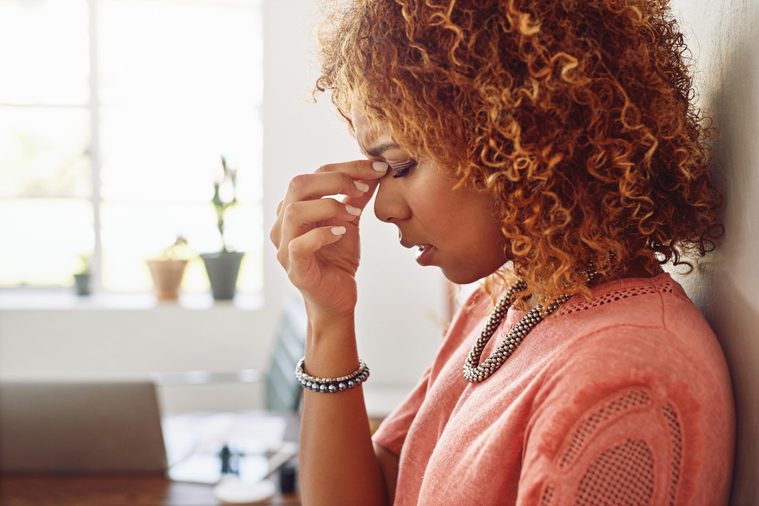
Your brain doesn’t work as well
When you don’t get adequate sleep—whether due to a chronic issue like sleep apnea, lifestyle reasons such as long work hours or raising young children, or bad habits like bingeing Netflix before bed—it may take a toll on your brain’s ability to function. “MRI imaging shows lack of sleep reduces blood flow to areas of the brain that control higher-level thought processes,” says Richard Shane, PhD, a Boulder-based behavioral sleep specialist and the founder of the Sleep Easily method. “It impairs your problem-solving abilities, slows your cognitive speed, and decreases constructive thinking skills and logical reasoning.”
19 Things You Should Do All Day Long for Better Sleep Tonight

You become forgetful
Another effect of sleep deprivation is an inability to retain memories. “Insufficient sleep interferes with your ability to focus and learn efficiently, which is essential for you to remember something,” Dr. Shane says. “Research shows that sleep strengthens nerve connections involved in memory, and also helps consolidate new information into memories. Insufficient sleep interferes with this.” Michael J. Breus, PhD, a California-based clinical psychologist known as “The Sleep Doctor,” explains that you need enough REM (rapid eye movement) sleep in order for your brain to solidify memories. “REM sleep is where you move information from your short term memory to your long term memory,” he says. “When you do not get enough sleep, you miss out on REM, and this affects memory.”
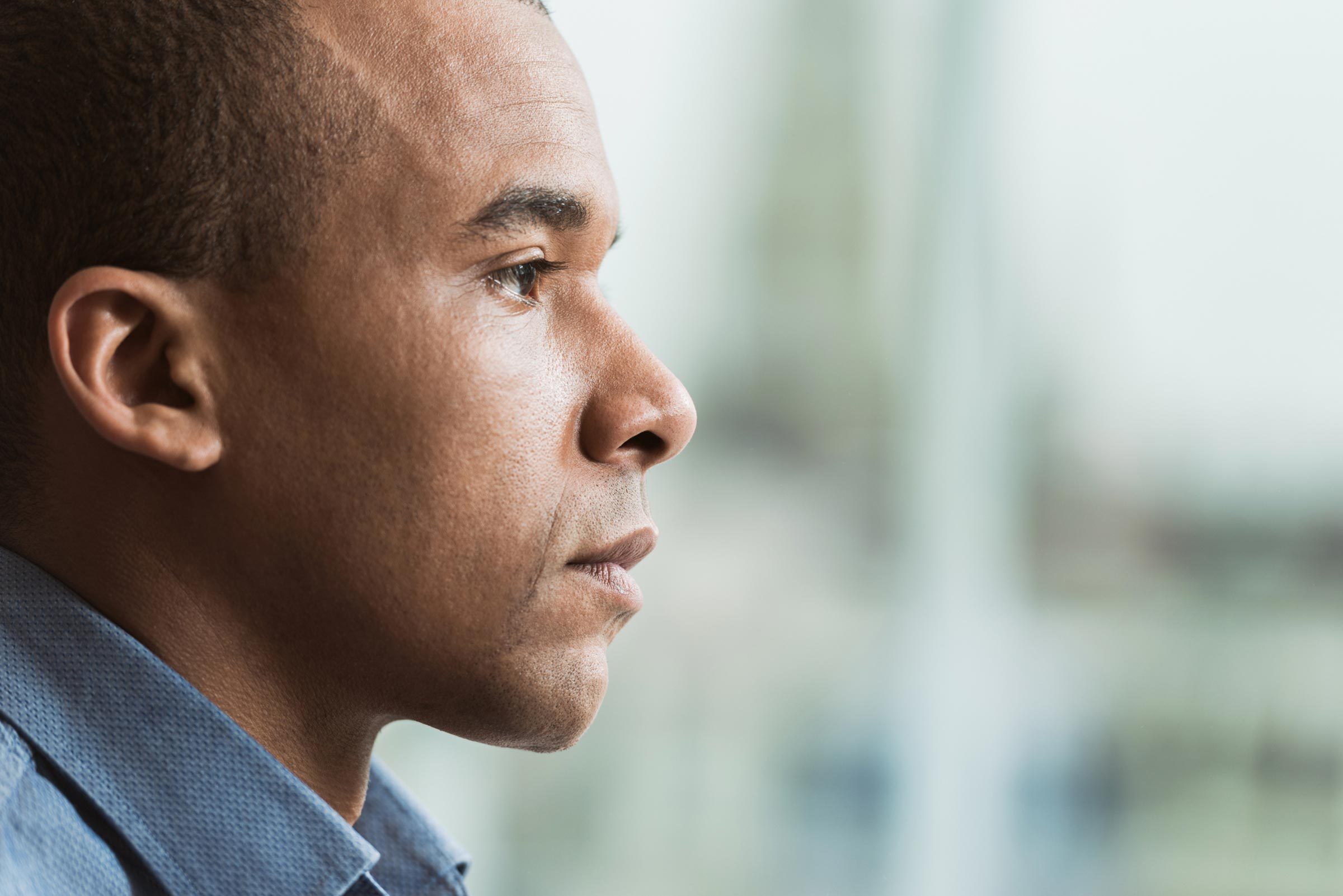
You get irritable
You’ve probably noticed that you wake up “on the wrong side of the bed” if you haven’t gotten enough shut-eye. “Sleep deprivation affects mood,” Breus says. “It makes you see everything in a more negative light because your emotions are far more volatile when sleep deprived.” Although it’s not known exactly why this is, Shane says it’s another way your brain doesn’t function well without sleep. “The area of your brain [frontal lobe] that’s in charge of thinking, reasoning, and logic usually balances the area of your brain [amygdala] involved with emotions such as fear, anxiety, aggression, and arousal,” he says. “MRI brain scans on people who have not had enough sleep show a decrease in connection between these brain centers, which increases reactivity, fear, and anger.”
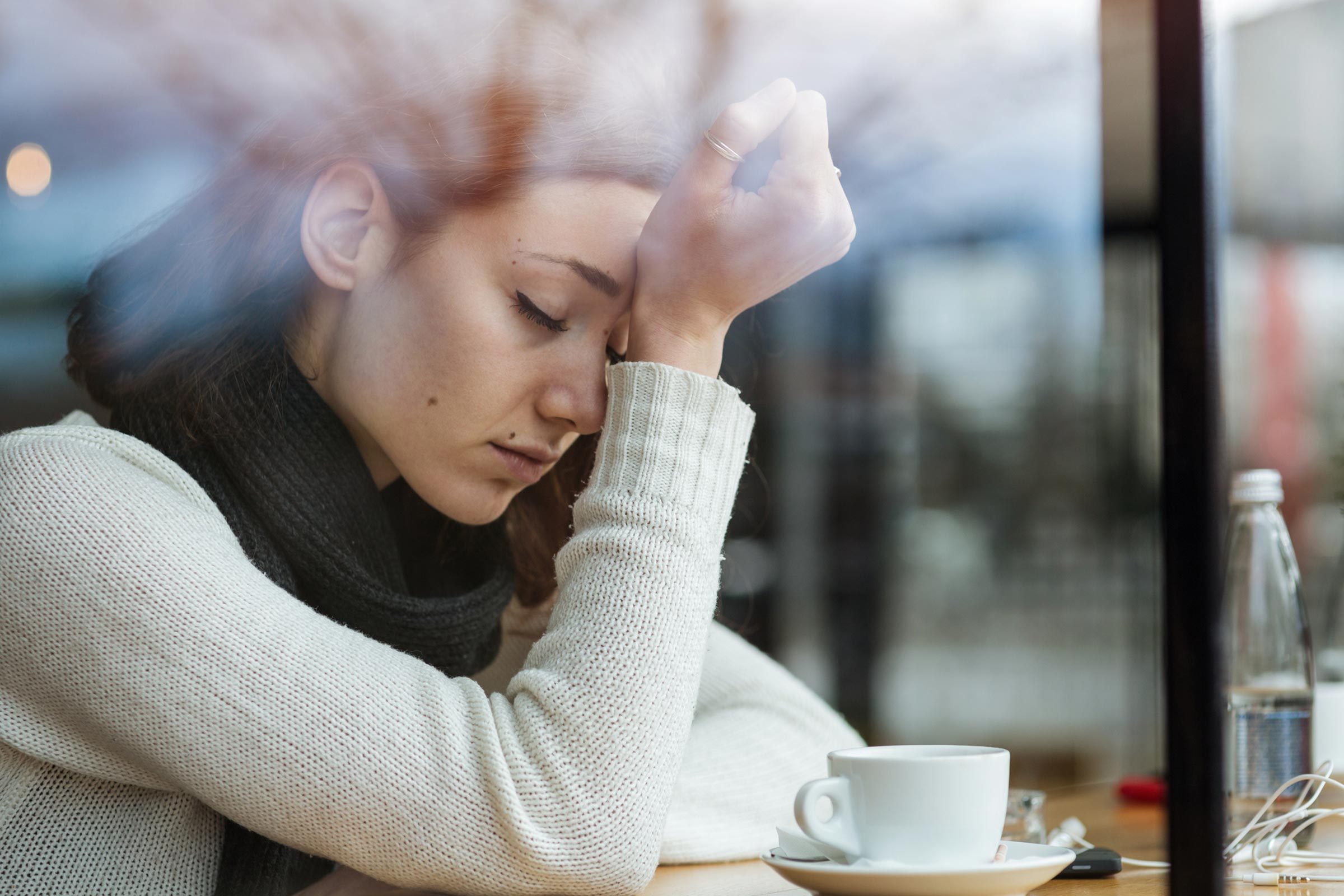
You’re more likely to be depressed
Another mood disorder linked to lack of sleep is depression. “While the specific brain mechanisms are not known, in one major study people with chronic insomnia were ten times more likely to develop depression,” Shane says. Because a lack of sleep and depression are so interconnected, it can be hard to tease out which came first. The National Sleep Foundation suggests keeping a sleep diary to help your doctor diagnose you and decide the best treatment approach.
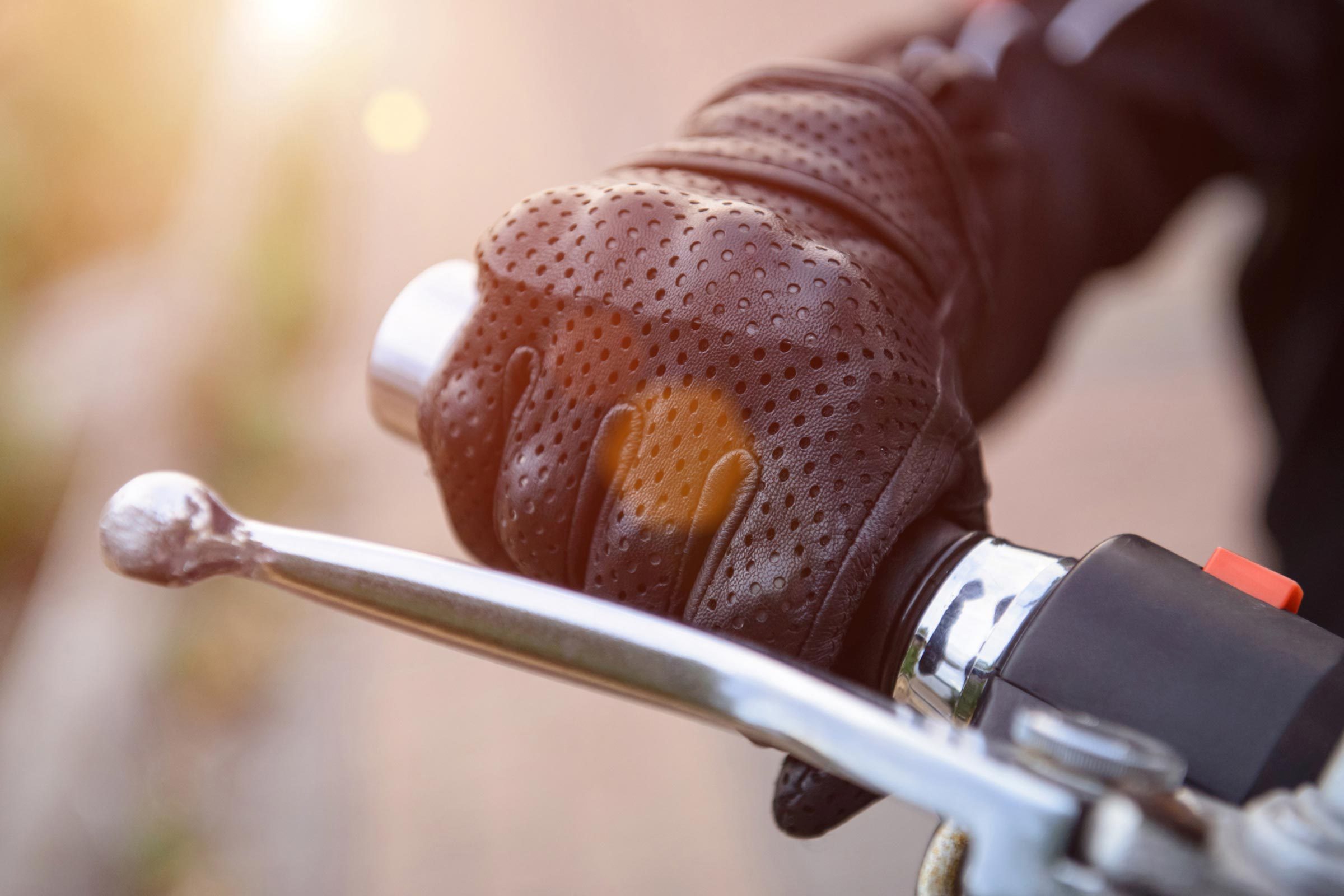
You make bad judgments
Along with fuzzy brain function comes impaired decision making. “Sleep has been shown to increase risk-taking behavior,” says Clete Kushida, MD, medical director of the Stanford Sleep Medicine Center. A study published in the journal Medical Decision Making monitored pediatric residents on 24-hour shifts. Researchers found that doctors made riskier medical decisions if they hadn’t gotten at least an hour nap. But even if your job seems to have less potential for disaster, your performance at work may still suffer because of poor problem solving, higher risk-taking, and poor management style without sleep, says Breus.

You may become a dangerous driver
Sleep deprivation doesn’t just endanger your own health—it can mean disaster if you get behind the wheel. “Sleep has been shown to decrease your ability for alertness, vigilance and higher order cognitive functions such as executive/frontal-lobe functioning—for example, complex activities like driving a car,” says Dr. Kushida. It can slow your reaction time as much as driving drunk, not to mention the risk of falling asleep behind the wheel. The National Safety Council says that drowsy driving is responsible for an average of 100,000 crashes a year, about 800 of them fatal.
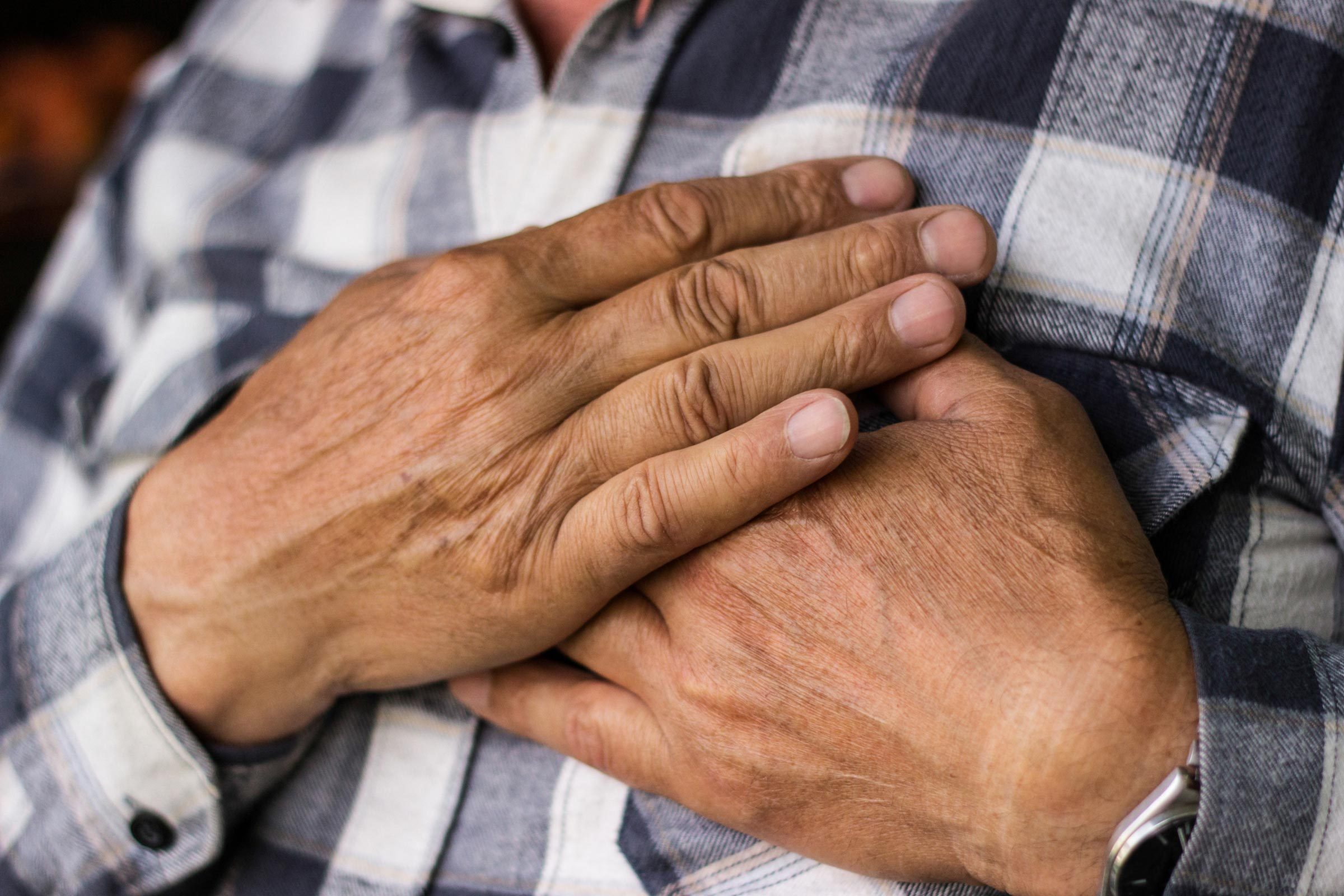
Your heart could suffer
You may think the only effect of sleep deprivation on your body is that you’re really, really tired. When you don’t get enough sleep, every system in your body is affected, potentially causing long-term effects on your cardiovascular health, including your risk for high blood pressure, heart attack and stroke, according to a study in the European Heart Journal.
For people with breathing issues such as sleep apnea, the risk is even greater. “Different sleep states such as REM and non-REM have variable and complex impacts on heart rate, blood pressure, blood flow to heart and breathing patterns,” says Vaishal Shah, MD, a staff physician in the Sleep Disorders Center at Cleveland Clinic. Sleep apnea disrupts this pattern, which results in the cardiovascular system working harder. Even in people without a specific sleep disorder, though, lack of sleep has been linked with high blood pressure and heart problems, likely due to not getting enough time to slow down and recover from the day.
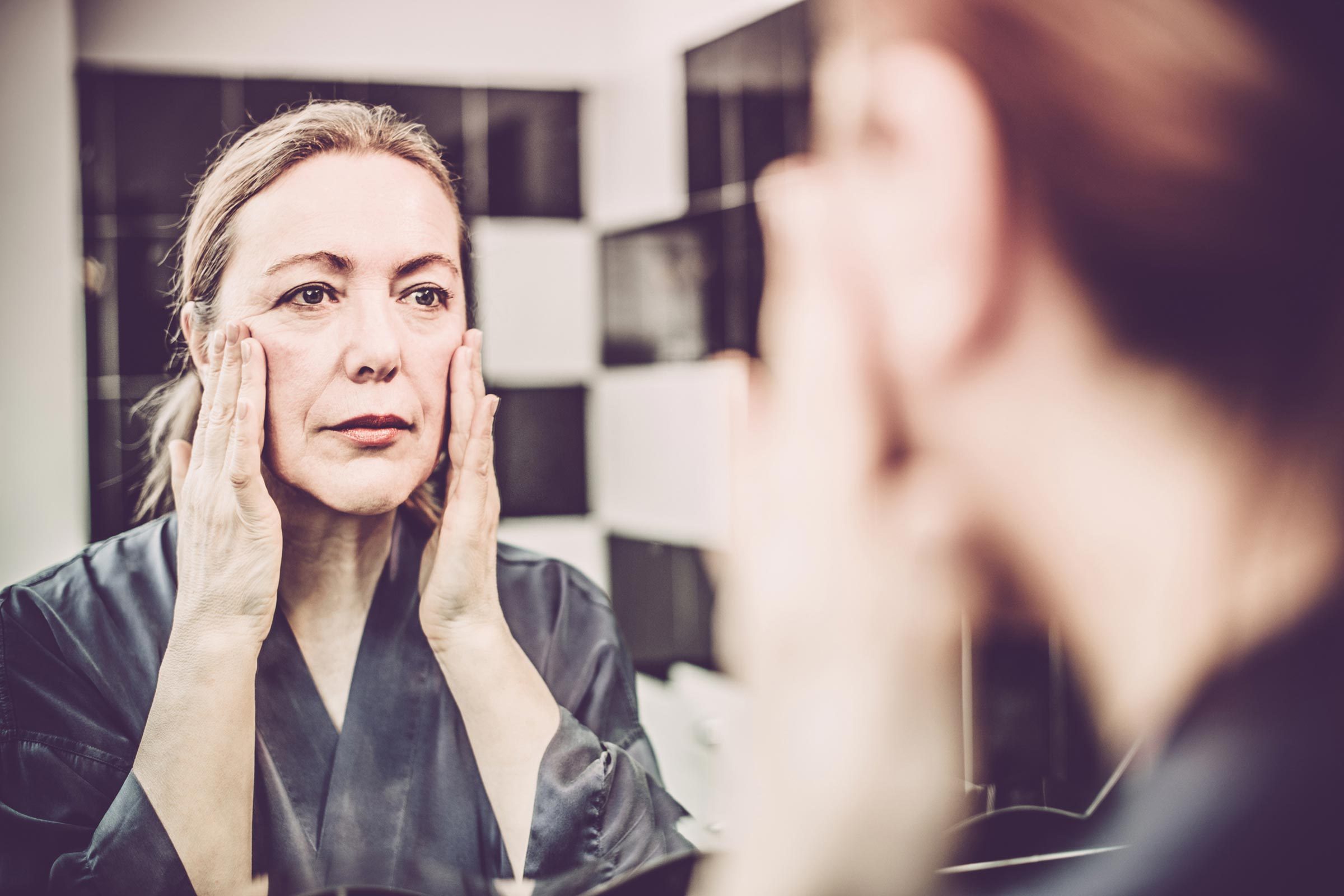
Your skin looks haggard
“Sleep plays an important role in the regeneration of cells and has effects on inflammation in the body, which is important for healing and in some skin problems,” says. Dr. Shah. “Skin is also an important organ that helps regulate body temperature during sleep. So, darkening below the eyes, dull skin or puffy eyes can be a visible symptoms of lack of sleep.”
11 Wonderful Things that Could Happen If You Go to Bed an Hour Earlier
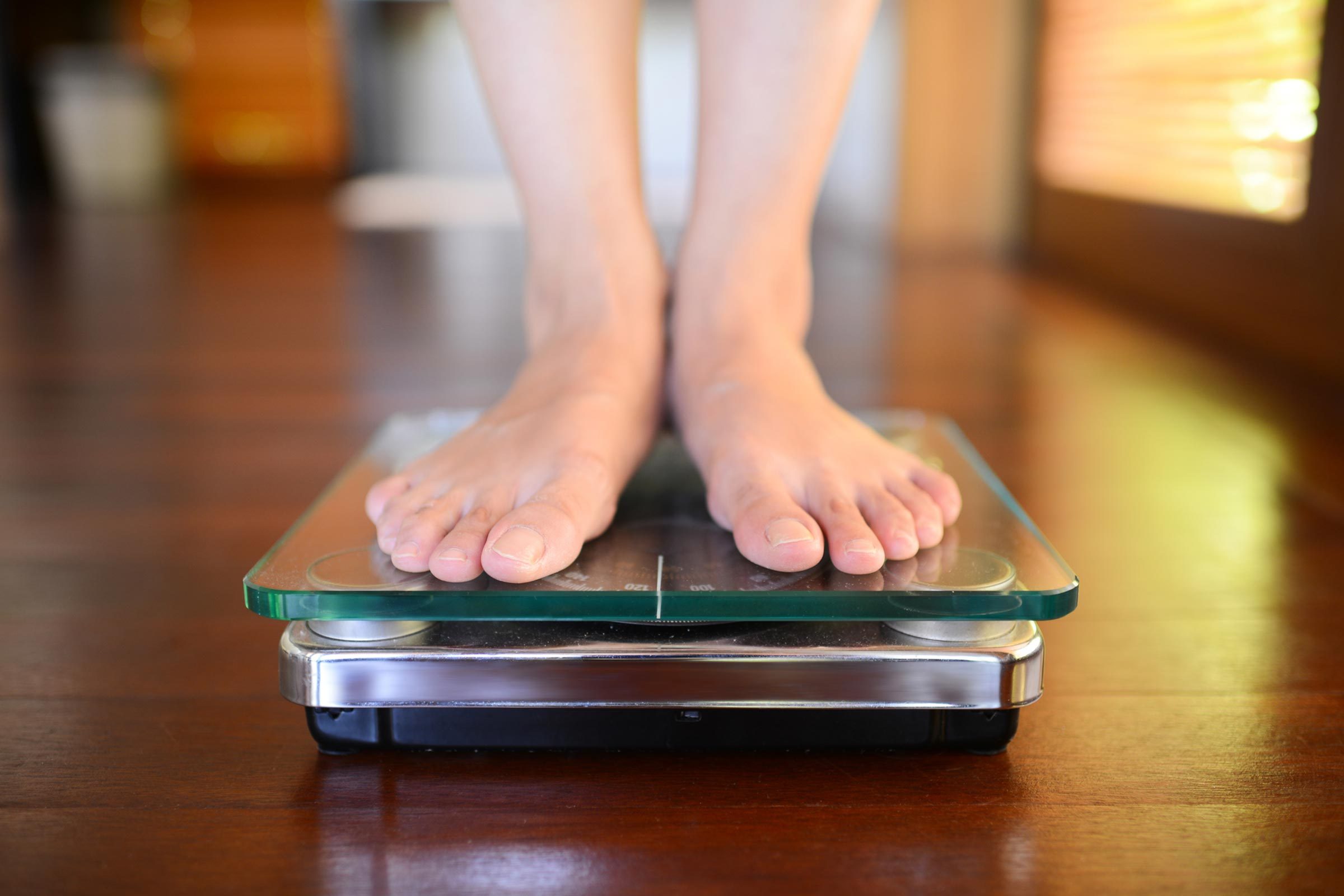
You gain weight
“There is growing evidence that sleep deprivation interferes with hormones involved in weight regulation,” says Carl Bazil, MD, director of the Division of Sleep and Epilepsy at New York-Presbyterian/Columbia University Medical Center in New York City. Dr. Shah says two specific hormones that regulate eating behavior are affected. “Ghrelin, which increases appetite, is high in people with sleep deprivation,” he says. “On other hand, levels of leptin, which lowers appetite, has been found to be low in sleep-deprived people.” In addition, a study in Diabetes Care has found an increased risk of diabetes, which is also connected to being overweight and obese, in people who got less than seven hours of sleep a night.
12 Sleep Disorders You Need to Know About—That Aren’t Sleep Apnea

Your sex drive drops
If you’ve ever told your partner, “I’m just too tired tonight,” it might not just be an excuse. “Fatigue and sleepiness tends to decrease sex drive, in addition to lowering testosterone in men with sleep loss,” Dr. Kushida says. Typically, testosterone levels rise when you fall asleep, peak during the first episode of REM sleep and remain at this level until you wake up. However, poor sleep can disrupt this hormonal process.
Sleep apnea in middle-aged men has also been previously associated with decreased testosterone, along with obesity and aging. A 2019 study in The World Journal of Men’s Health found while obstructive sleep apnea (OSA) treatment does not reliably increase testosterone levels, OSA treatment combined with testosterone replacement therapy can improve hypogonadism—the failure of the testes to function properly—and also alleviate erectile/sexual dysfunction.
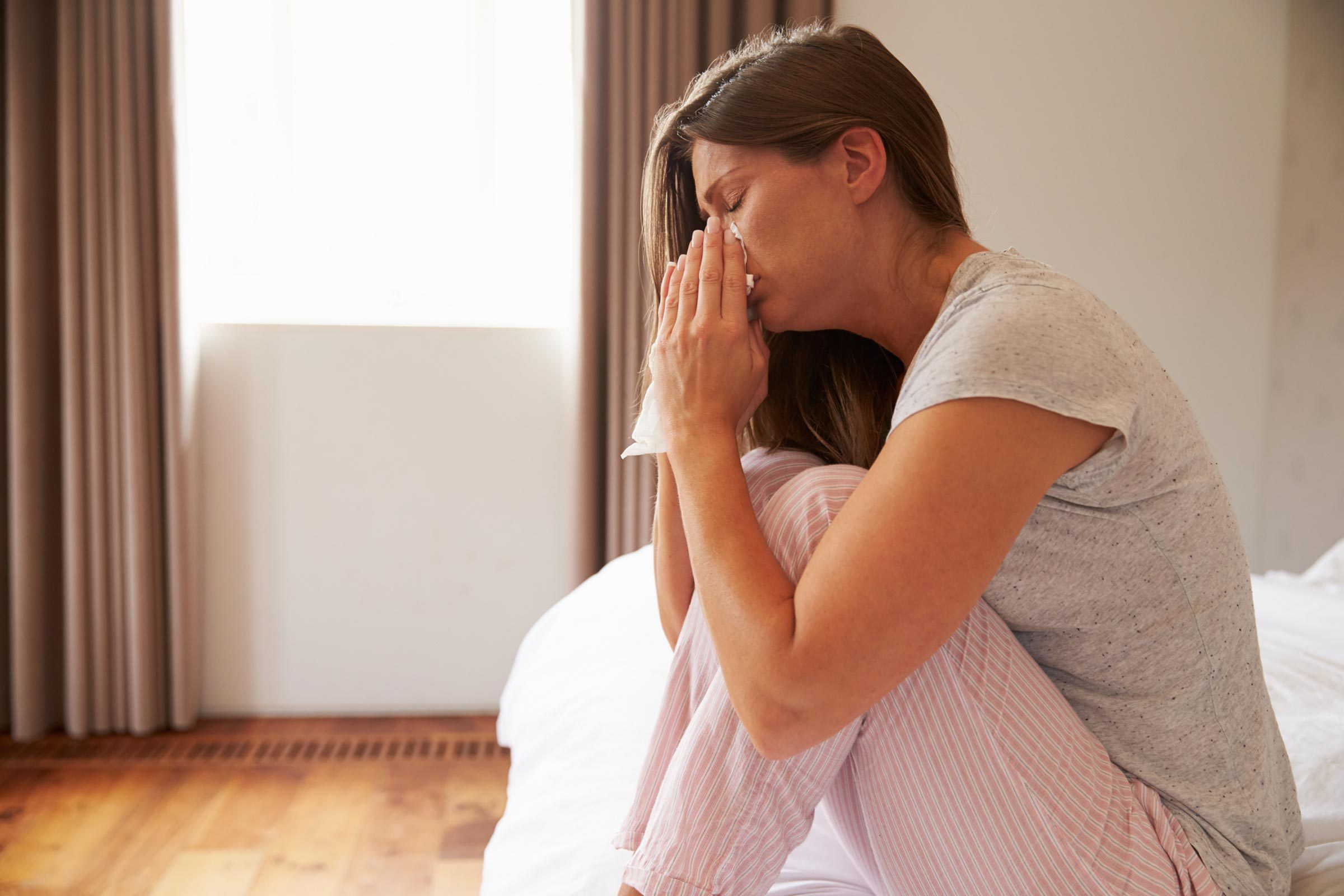
You’re more likely to get sick
If you feel like you always come down with a cold when you sleep less, it’s not just in your head. “Studies have demonstrated that a lack of sleep can impair specific parts of the body’s own immune system and its response to infections,” Dr. Shah says. So, not getting enough sleep can increase the chance that exposure to a cold virus will result in you actually getting sick. In addition, vaccines’ effectiveness could be compromised. “Lack of sleep decreases the chance that immunizations will be effective in preventing such diseases as hepatitis B,” Dr. Bazil says. “And by inference, other aspects of the immune system are almost certainly affected, contributing to the risk of diseases including cancer.”
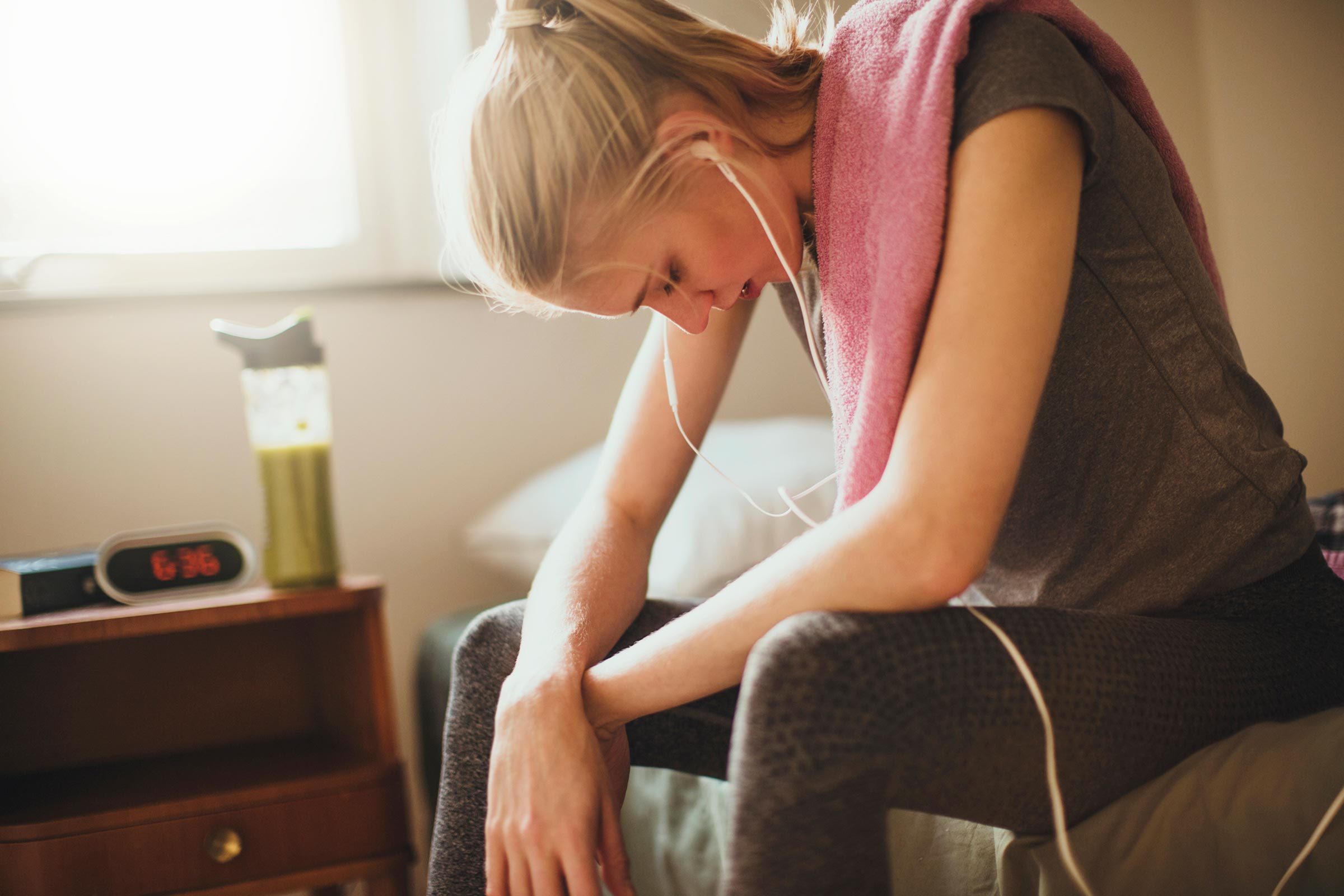
You have no energy for exercise
Skimping on sleep will almost definitely lead to less motivation for working out. “You’re going to exercise less if you’re constantly tired,” Dr. Bazil says. And if you do exercise, your athletic performance may suffer due to a slower reaction time and less energy. Less exercise means also more weight gain and poorer overall health.
8 Little Changes You Can Make to Sleep Better in Just One Day
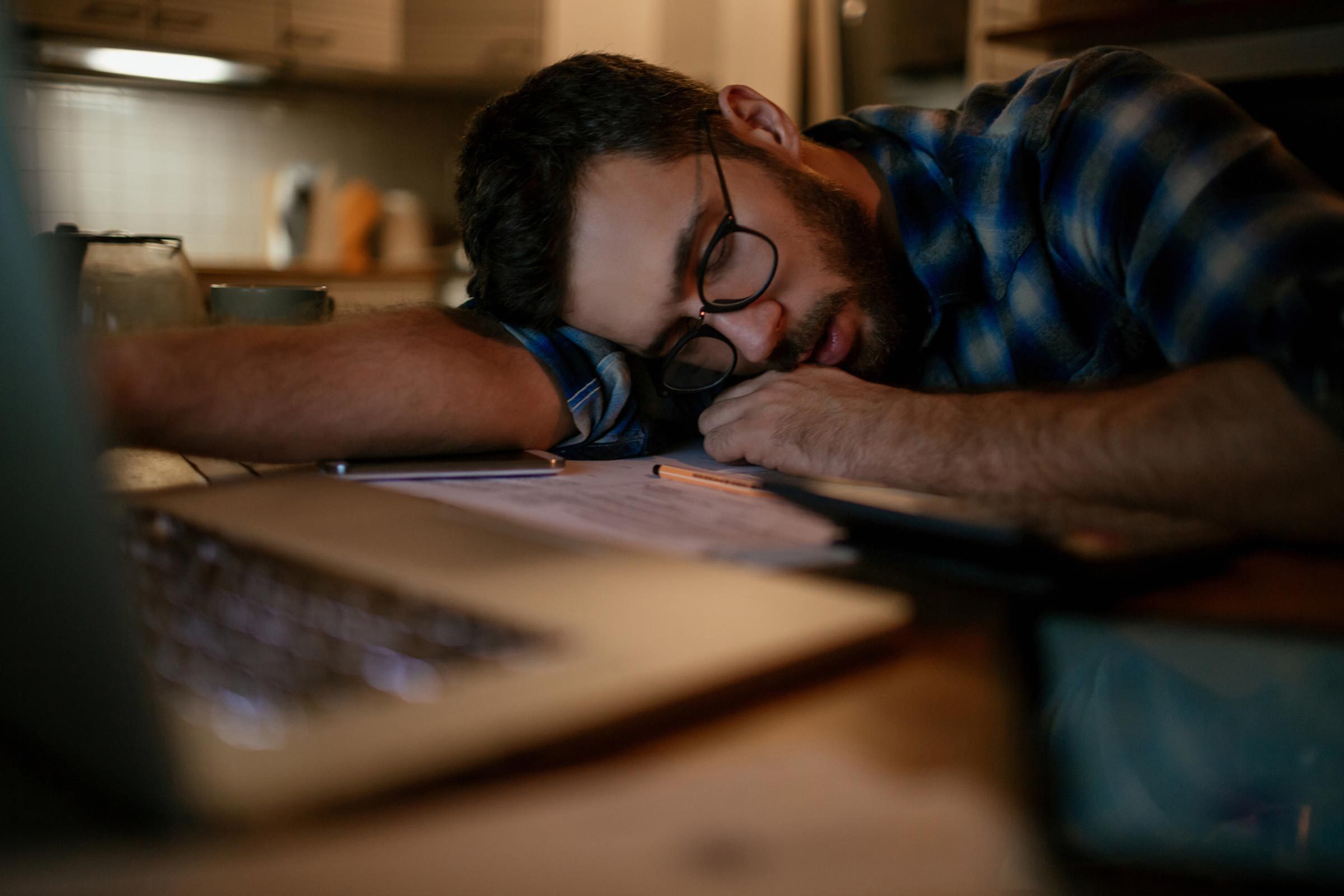
Sleepiness leads to more sleepiness
There’s a myth you can “get used to” sleeping less—in fact, functioning on a short amount of sleep is considered by some to be a badge of honor. But Dr. Bazil says this is “absolutely not” the case. “On the contrary, there is considerable evidence that ‘sleep debt’ accumulates with continued sleep deprivation, resulting in further deterioration in alertness, concentration, and memory function,” he says.
Dr. Shah says this sleep debt just makes you feel sleepier and sleepier during the day, and can persist even after a night of “catch up” sleep. And you know that feeling of confusion when you wake up from a deep sleep? Dr. Bazil says it’s called “sleep drunkenness,” and it’s more likely among people who are sleep deprived, as the body tries to recoup by spending more time in that deep state.
In order to get better sleep, our experts recommend going to bed and waking up at the same time every day, limiting caffeine and alcohol close to bedtime, exercising earlier in the day, getting 15 minutes of sunlight to set your body clock, dimming the lights in the evening, avoiding screen time before bed and keeping your bedroom dark and cool.
For more wellness updates, follow The Healthy on Facebook, Instagram, and Twitter. Keep reading:
- Nate Berkus Just Shared His #1 Best Design Secret for a Better Night’s Sleep
- These Are the Only 3 Skincare Products a Dermatologist Says We All Need
- Science Says Sleeping with This Device on Could Actually Make You Gain Weight
- Here’s How Much Water You Really Need in a Day, with Nutritional Scientists’ Latest Wisdom

